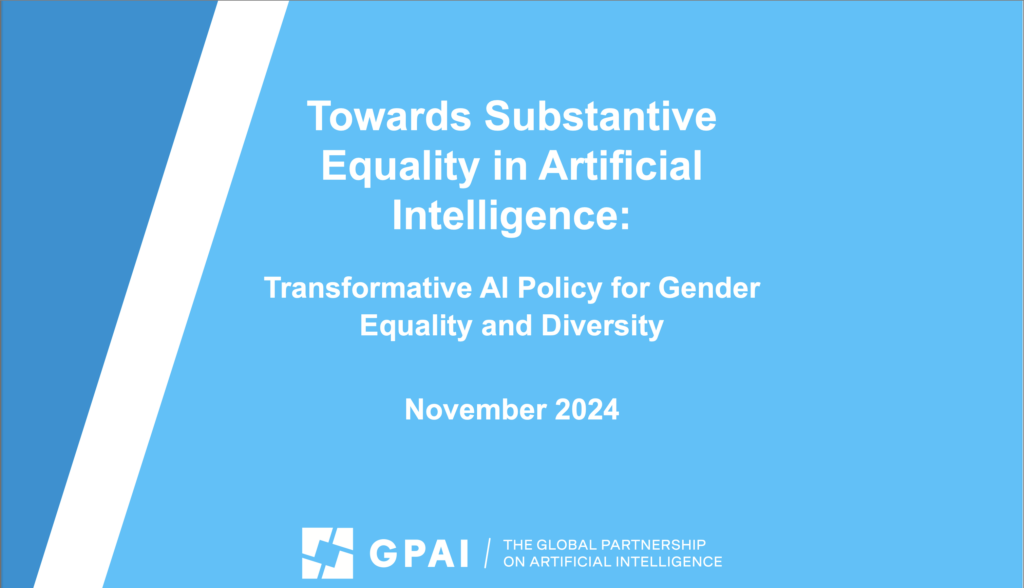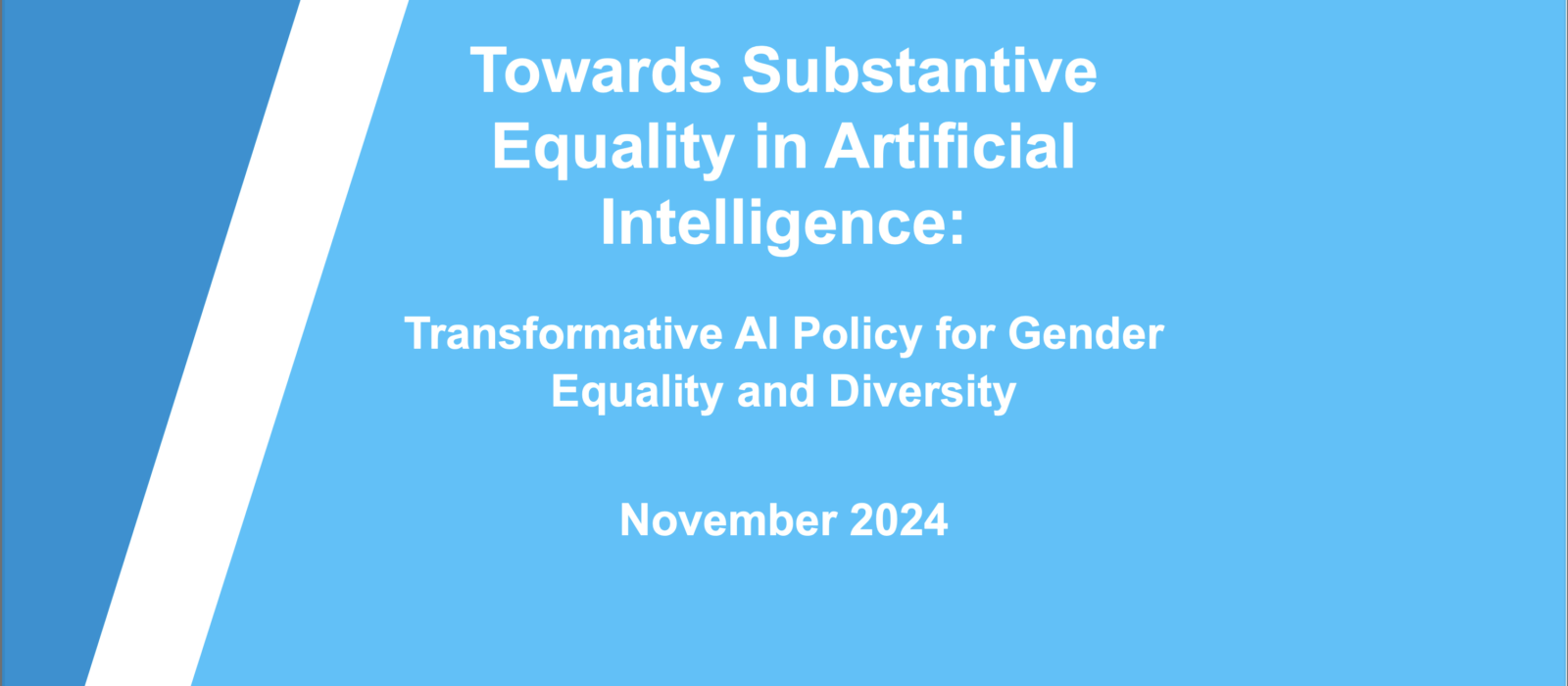
W@TT Initiatives spotlighted in Global Partnership on Artificial Intelligence Report 2024
The AI & Equality Human Rights Toolbox and the f<a+i>r Feminist AI Research Network, two flagship initiatives of Women At The Table, have been spotlighted in the recently published Global Partnership on Artificial Intelligence (GPAI) Reports for 2024: Towards Substantive Equality in Artificial Intelligence: Transformative AI Policy for Gender Equality and Diversity and the Policy Guide for Implementing Transformative AI Policy Recommendations.
The Global Partnership on Artificial Intelligence (GPAI) is an international initiative established to guide the responsible development and use of artificial intelligence (AI) in a manner that respects human rights and the shared democratic values of its members. The partnership was first proposed by Canada and France at the 2018 44th G7 summit, and officially launched in June 2020. GPAI is hosted by the Organisation for Economic Co-operation and Development (OECD).
AI & Equality Human Rights Toolbox
The AI & Equality Toolbox is an educational platform designed to catalyse informed debate and collabo- ration in creating a human rights–based approach to AI. It provides methodology, workshops and online courses curating resources aimed at technologists, AI practitioners, social scientists, activists, policy makers and the public. The initiative focuses on context and purpose, multidisciplinary collaboration and communi- ty engagement to achieve equity and inclusion in AI innovation. It is an initiative of Women at the Table in collaboration with the UN Office of the High Commissioner for Human Rights (OHCHR) and EPFL. Its online course sits on the Sorbonne Center for AI (SCAI) learning portal in collaboration with the Sorbonne University.
How the initiative advances substantive equality: In promoting a human rights–based approach to AI, the Toolbox addresses systemic disadvantage by ensuring marginalised groups are included in AI development, reducing biases and promoting equity. It fosters informed debates and collaboration between technologists, policy makers and the public, ensuring marginalised communities are included in AI policy making. This redresses the democratic deficit. Finally, through education and interdisciplinary collaboration, the Toolbox challenges the myth of AI neutrality, working to create an environment where technologists, policy makers and people impacted by AI systems share a common vocabulary that recognises and integrates a range of social perspectives.
Policy insights
■ The adoption of a human rights–based approach
Adopting a human rights–based approach throughout the AI lifecycle ensures that AI systems are developed,deployed and audited with respect for human rights, fostering informed debates and shared vocabulary on the ethical use of data. The human rights baseline emphasises AI developers’ responsibility to adhere to the duties of transparency and explainability, and the “right to know” of people impacted by AI systems.
■ A platform for multidisciplinary collaboration and community engagement
The AI & Equality Human Rights Toolbox sets out to create a global community of AI researchers, social scientists, data scientists and activists who collaborate and exchange on how AI systems can serve the public good and prevent harm. The initiative fosters and promotes community engagement and capacity development through a platform with resources such as online courses, and possibilities for discussion. By supporting spaces for multidisciplinary collaboration and community engagement anchored in human rights, policy makers can contribute to building greater AI literacy, capacity and awareness.
The Feminist AI Research Network
The Feminist AI Research Network, f<A+i>r, initiative aims to create inclusive AI technologies by addressing systemic gender, racial and intersectional biases. The invitation-only Global Directory includes approximately 100 feminist AI academics, activists and practitioners from different fields that share multidisciplinary research and feminist AI innovation to advance trans- formative change. f<A+i>r fosters South-South-North- South knowledge sharing and highlights feminist in- novations globally. The f<A+i>r network was created in 2020 by the <A+> Alliance for Inclusive Algorithms, supported by the International Development Research Centre of Canada (IDRC), the Oak Foundation and the Swiss Federal Department of Foreign Affairs (FDFA) Human Rights and Women’s Rights Divisions.
How the initiative advances substantive equality : The f<A+i>r initiative furthers the goals of addressing systemic disadvantage by actively combating gender, racial and intersectional biases in AI technologies. It seeks to correct future harms with new data, algorithms, models, policies and systems that can be researched and piloted for transformative change. It redresses the democratic deficit by fostering the inclusion of and supporting the capacity development of feminist innovation teams from the Global Majority. The initiative reverses misrecognition by producing effective, innovative, interdisciplinary models that harness emerging technologies, correcting for real-life bias and barriers to women’s and other marginalised groups’ rights, representation and equality.
Policy insights
■ The promotion of transformative AI systems: By funding and supporting in other ways the development and implementation of AI systems and processes that actively integrate techno-feminist principles and correct systemic gender and intersectional biases (creating new datasets, algorithms and models), policy makers support gender equality and diversity in AI.
■ Collaboration and knowledge exchange: The network of feminist technologists from the Global Majority contributes to the development of context-specific AI solutions that address regional needs and challenges. This leads to more inclusive and equitable AI policies globally.
Last modified: January 20, 2025
